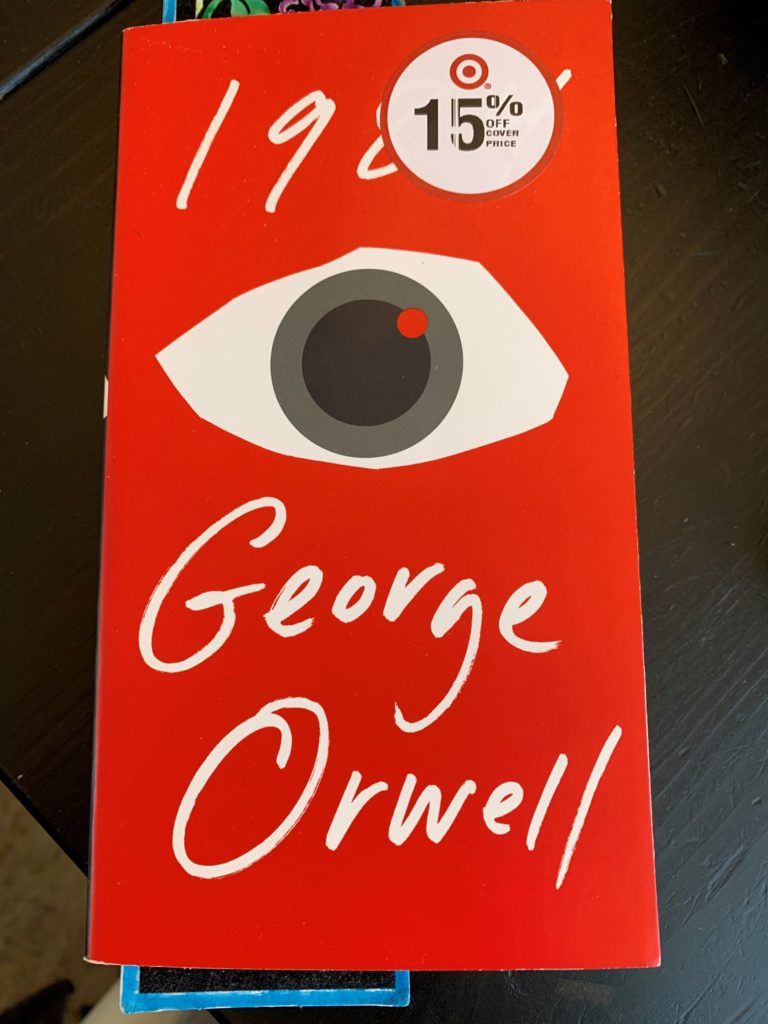So we are to another Friday; at least this one is a little less dramatic than the last. And we are through another chapter in 1984, I think that there are four more to go. I might even combine a couple short ones, we will see.
In this chapter we see more of the torture process with Winston and are revealed some of the slogans and their meanings, at least to Obrien. I am going to surmise that the purpose of this chapter is for Orwell to explain his intent to using these these slogans throughout the book.

Early on in the chapter one of the first lines are the three stages to the process Winston is undergoing. They are learning, understanding and accepting. The last chapter was about learning and this one will be accepting.
The use of power: I think by far and away that this is the ‘how’ of all of this world that Orwell has conceived. There are so many intersecting ideas with slogans and quotes to re-enforce the idea that power is the most important mechanisms to perpetuate the party. Here are a couple to support what I am saying.
- The party seeks power for its own sake
- Power is inflicting pain and humiliation
- Power is not a means but an end
What more can you say about this? It seems obvious that any regime is going to exert power to propagate its values. I don’t have any doubts that China uses power when it deems necessary. The State of Oregon is going to exert power over businesses to enforce the new mask mandates, as they stated so.
I have heard it another way and that is power is force. Winston states that he believes in humanity and that they will somehow eventually overthrow the Party. The only card that really hasn’t been addressed in this entire 1984 scenario is that absolute exertion of power can never be exercised otherwise it will likely fail. The counterpart to power is compliance. Either appropriate force must be exerted for compliance or there will be no one left to have power over or the system itself will become corrupt and fail within.
I think the idea that all the high party members are complete and exact ideologues is extremely unlikely. But, this is a story after all. Once we extrapolate the concepts and overlay them into our own world today, we can still get a lot of good insight into human nature.
Ideas are eternal: Orwell makes a point to that highlight humanity’s ultimate finiteness. We finally hear the definition of ‘Slavery is Freedom’ and that is to say that by keeping everyone working for the party (slavery) the idea will live on forever (freedom).
I think the enlightened reader might have a problem with how this concept is play out. We can all agree that the human body has a limited lifespan. We also can agree that ideas and concepts can be useful way beyond our lifespan. I am proclaiming to have the same beliefs as people over 2000 years ago with names Peter, Paul, Luke, Matthew and John.
Where we balk is the value of those beliefs. First of all, mine are personal not enforced on an entire civilization. But, second what if I am wrong? What would it hurt to try and live a better life, be better to fellow humans and strive for a cleaner existence? What am I really missing, the opportunity to prove survival of the fittest?
So while I 100% agree with Orwell’s portrayal of the concepts, I am not solidly in the camp that this is just a foreboding tale of the future, more to come on this as I wrap of the book.
End Your Programming Routine: What I got out of this chapter is more supporting information for my conclusion (so sorry you will have to wait). I think that is going to be exiting to come all the way back around to the beginning and look at where I am at now versus where I was when I started. I think that it is going to reveal a lot about me and how I think and I hope that I can do this series justice. I guess that we will see.
Recent Comments